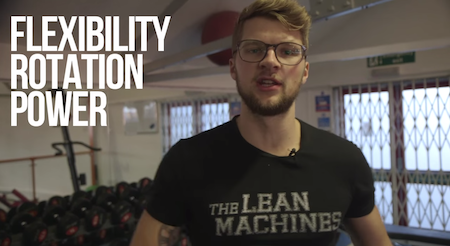This week we have Erki Tarro guest posting for the blog.
Erki Tarro is a football enthusiast and a blogger at a sports tech company Sportlyzer – a software platform for sports team administration and training management. For more stories about club development and coaching, visit their blog.
Why is a common training philosophy important to the development of the whole club?
A lot of coaches can be impatient. We want results and progress and we can get lost in the everyday business. Though we may realise the importance of long-term development, at times it can be hard to implement. Training planning goes on in cycles, but how to formulate and find your goals in the long-term perspective? Perhaps a club-wide training philosophy accepted and followed by all the coaches and training groups can give you a good start to bring the development of the club and the athletes to the fore.
What good will it do?
- Rise the quality of your training
Your athletes will go through different stages of development and different quality of training. In the long term, they will have several coaches. In my own years in youth football, I had about 10 coaches, all of them with different methods and motivation. Athlete’s own motivation may change in their athletic course as well. With all these changes over the years, someone, somewhere, really has to be a clear overview of what goes on.
In a lot of clubs, coaches change every few years as the kids grow older. For an overarching idea of what the goals and methods are, a club-wide training philosophy is the most essential tool. A shared vision and strategy helps to develop the kids in a concise, informed way. Getting the coaches on board with a common training philosophy will also help them plan their own trainings accordingly, with the overall picture as a canvas to paint his or her masterstrokes on.
“A basketball team is like five fingers in your hand. If you can get them all together, you have a fist.”
- Formulate mission and values
A big part of a club’s philosophy is defining the values and the mission of your club. What do you stand for? Are you the Barcelona of Dublin or the Bayern of Belfast? What kind of players are you developing? Who they are and should be, on and off the pitch? Are you producing only top talent and high performers or are you more focused on the social aspect of your club?
What kind of world do you represent?
These questions can all be answered with a well-defined club philosophy. It’s like the Bible of your club, of some sorts at least. It helps to define your club, both to yourself, other stakeholders and to the wider community. If you know who you are and what you represent, you have a much clearer view of where you should be in two, five or 10 years’ time. A training philosophy will give you the inputs to predict the outcomes of club development in the future.
- Remove the gray areas
A football club consists of teams, players, coaches, parents, managers and so on. Inevitably, we come from different backgrounds. Yet we fight for the same cause, which makes sport so special. However, there’s bound to be some differences of opinion which a club philosophy can address. It will remove the fog from your windshield, allowing coaches and managers to get everyone else on the same page.
In times of doubt, a club training philosophy is a handy text to turn to. Not sure whether a coach should be the one responsible for the equipment or is it okay for the players to take responsibility? Define it and add it to training philosophy. It can be the littlest thing or an overarching idea – the main goal is to align everyone in your club with the same values and guidelines. Gray areas can cause you problems and take your time.
Basketball coaches have a good saying: “A basketball team is like five fingers in your hand. If you can get them all together, you have a fist.” For the long-term, sustainable club or team development, you need to have a fist to fight for the same cause.
- Communication with the parents and the coaches
As discussed before, a training philosophy helps you define your club, your values, your goals and what you teach your players. Still, it cannot be a document just for the head coach or the manager, but rather a set of principles to spread around the whole club. Communication is the key here. Having a fancy document is not a magic key to success in itself, but if your whole club follows it, it can be.
This is especially true when it comes to parents and in larger clubs, coaches as well. The philosophy will communicate your message in a clear and holistic way. If you’ve underlined the key principles to follow, parents will know why you do trainings the way you do without having to doubt every single action you take. It will create trust in what you do and help both overactive and under-active parents to contribute to their kid’s success in the best possible way.
- Line out the general guidelines and codes of conduct
In addition to knowing why your club and coaches do what they do, it’s beneficial to line out how do you do it. This can apply to all the stakeholders in your club – coaches, athletes, parents, volunteers, the club itself and the fans.
Having codes of conduct in your club’s philosophy can help you deal with parents shouting at referees, coaches not being diligent enough or the club not being fast enough to respond to emails. Whatever rules you feel can help you move toward your goals in a simpler, faster and better way can be taken into consideration to write down in the guidelines. Something to refer to and educate your club members!
- Create a long-lasting legacy
In the end, we all want to leave a mark behind. We want it as individuals and as a club as well. We still rave about the Netherlands national team of 1970s, even though they didn’t exactly win too much. It’s about the legacy they left behind, their style of play, the players who moved on to revolutionize football in more than one way.
Their philosophy of Total Voetbal is still talked about and respected today on a global level. And even for a grassroots club, it’s absolutely possible to leave such a legacy to your community or to your players. Maybe the next superstar will fondly remind your club as a place where he got the proper nurturing environment to grow as a player and as a person. Or even on a local level, wouldn’t it be amazing if your “school of thought” was talked about decades from now, because it gave so much to the players and to the community?
Whatever the most relevant reason for applying a common training philosophy for your club is, life has shown that with a shared club-wide philosophy, you will reap the rewards. It can be success on or off the pitch for your team or your club. The next La Masia or a valuable part of the community. It’s not just a document, but a clearly defined mentality and spirit of your club.
You can follow Sportlyzer on Facebook and Twitter
– End
I always like to hear your opinions. Please comment below or email me info@thecoachdiary.com, if you don’t have anything to add then please forward this on to a friend.
Thanks for reading. I’m also on twitter @Coachdiary

